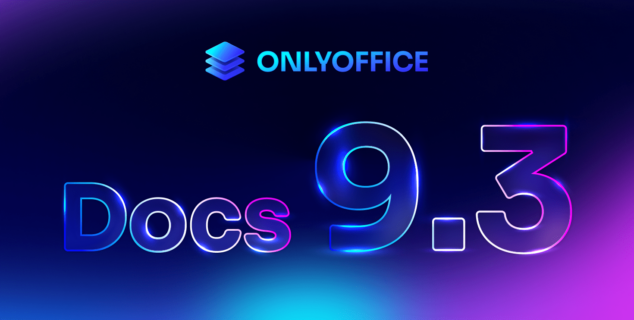Comprehensive Guide to Using AI in Digital Marketing
Artificial Intelligence (AI) revolutionizes digital marketing by automating routine tasks, providing deep customer insights, and enabling highly personalized experiences. It optimizes content creation, enhances SEO strategies, and drives more effective marketing campaigns, ultimately increasing efficiency and engagement. Dive into our comprehensive guide on harnessing the power of AI in digital marketing.

Overview of AI in Digital Marketing
Artificial Intelligence (AI) is transforming digital marketing by providing tools and techniques that enable marketers to deliver personalized, efficient, and effective campaigns. AI refers to the simulation of human intelligence in machines designed to think and learn like humans. In digital marketing, AI can analyze vast amounts of data, predict customer behavior, create personalized content, and optimize campaigns for better results.
Artificial Intelligence is a broad field encompassing various technologies for creating intelligent systems, while Generative AI specifically focuses on producing new content like images and text using advanced algorithms.
Benefits of Using AI in Digital Marketing
Enhanced Personalization: AI enables marketers to create highly personalized experiences for customers by analyzing their behavior, preferences, and past interactions.
Improved Efficiency: Automation of repetitive tasks such as email marketing and social media posting saves time and reduces human error.
Data-Driven Decisions: AI provides insights and analytics that help in making informed decisions and optimizing marketing strategies.
Better Customer Insights: AI tools can analyze customer data to identify trends, patterns, and preferences, leading to better targeting and segmentation.
Cost Savings: By automating processes and improving targeting, AI can reduce marketing costs and increase ROI.
AI Applications in Digital Marketing
Content Creation
AI-powered tools can generate content, such as blog posts, social media updates, and video scripts. Natural Language Processing (NLP) enables AI to understand and produce human language, creating content that resonates with audiences.
AI tools for content creation:
ONLYOFFICE Editors. For optimized text content creation, leverage the ChatGPT plugin available directly within the text editor. This plugin acts as an assistant, helping you generate ideas for your content and providing suggestions on topics for blog posts. It can also assist in writing social media posts and crafting engaging text for marketing materials such as brochures, emails, and advertisements.

Copy.ai. Generates high-quality content for blogs, social media, and websites. Offers various templates and customization options for different content needs.
Writesonic. Provides AI-generated copy for ads, blog posts, and more. User-friendly interface with a variety of content types and languages.
Jarvis (Jasper AI). Creates SEO-optimized content, including blog posts, articles, and ads. Known for its high-quality content generation and SEO focus.
Marketing Research
AI can analyze vast amounts of data to provide insights into market trends, customer behavior, and competitive analysis, helping marketers make informed decisions. By leveraging AI tools, businesses can gain a deeper understanding of their target market, identify emerging trends, and stay ahead of the competition. AI-driven market research tools can process and interpret large datasets quickly, offering actionable insights that would be time-consuming and difficult to obtain manually.
AI tools for marketing research:
ONLYOFFICE Editors. Utilize AI Helpers directly within your document to conduct thorough market research, gather missing information, delve into topics, uncover industry trends, and analyze them. Create comprehensive reports based on the data collected to ensure your insights are accurate and up-to-date.

SurveyMonkey Genius. It offers suggestions for improving survey questions and predicts the potential success of surveys based on their design. The AI-driven insights help in crafting more effective surveys and analyzing responses to gain meaningful insights into customer opinions and market trends.
Qualtrics XM. Uses AI to analyze customer feedback and market data, providing actionable insights. It helps marketers understand customer preferences, measure brand perception, and track market trends. The platform’s capabilities enable the detection of emerging trends from large volumes of unstructured data.
Search Engine Optimization (SEO)
AI helps in keyword research, content optimization, and predicting search engine trends. Tools like AI-powered SEO platforms can analyze search patterns and recommend strategies to improve search rankings.
AI tools for SEO:
ONLYOFFICE Editors. Make your texts ready for search engines by using integrated AI Helper to find the right keywords, create accurate meta descriptions, and improve your website’s ranking. AI tools can analyze search trends, recommend optimal keywords, and generate SEO-friendly content, helping your site achieve better visibility in search engine results.

SEMrush. Comprehensive SEO tool for keyword research, site audits, and competitive analysis. Extensive database and powerful tools for all aspects of SEO.
Ahrefs. Provides tools for backlink analysis, keyword research, and site audits. Known for its robust backlink analysis and large keyword database.
Moz Pro. Offers keyword research, site audits, and rank tracking. User-friendly interface with strong emphasis on education and community support.
Email Marketing
AI enhances email marketing through personalization, automation, and optimization. AI tools can analyze recipient behavior to send personalized emails at the optimal time, increasing open rates and conversions.
AI tools for email marketing:
ONLYOFFICE Editors. The integrated AI assistant will help you create engaging campaigns. Gather more leads with personalized messages and increase conversions. Easily translate and create content in different languages to target diverse audiences. ChatGPT plugin can streamline your marketing efforts, ensuring your campaigns are effective and reach the right people.

Mailchimp. Provides AI-driven insights and automation for email marketing campaigns. Widely used platform with comprehensive email marketing features and integrations.
SendinBlue. Offers AI-based tools for email personalization and automation. Focuses on scalability and user-friendly automation features.
Moosend. AI-driven email marketing platform with advanced segmentation and personalization. Cost-effective solution with a strong emphasis on automation and analytics.
Social Media Marketing
AI tools analyze social media data to identify trends, sentiment, and customer preferences. They can also automate posting schedules, target ads more effectively, and measure campaign performance.
AI tools for social media marketing:
ONLYOFFICE Editors. Prepare your texts for search engines by finding the right keywords and creating precise meta descriptions to achieve the best possible website ranking. Internal AI Assistant can help identify relevant keywords, generate SEO-friendly content, and optimize meta descriptions, enhancing your site’s visibility in search results.

Hootsuite. Manages multiple social media accounts and provides analytics. Comprehensive social media management platform with robust analytics and scheduling features.
Buffer. Simplifies social media scheduling and provides analytics to improve performance. User-friendly interface with strong emphasis on content scheduling and performance analysis.
Sprout Social. Offers social media management, analytics, and customer engagement tools.Integrates social media management with CRM features to enhance customer engagement.
Fact-Checking & Collecting data
Fact-checking is essential for ensuring the accuracy and credibility of content before publication. AI tools can quickly verify information, cross-referencing it with reliable sources to identify false or misleading claims. This not only enhances the trustworthiness of your content but also protects your brand’s reputation.
AI tools for fact-checking:
ONLYOFFICE Editors. Use AI Helpers to verify facts, add additional information, and eliminate any doubts. AI tools help ensure the accuracy and completeness of your content, making it more reliable and trustworthy. Used directly in the opened editor, these tools help you to confidently provide your audience with credible and well-rounded information.

Factmata. It uses AI to detect and filter out false and misleading information. It can analyze text for potentially harmful content, providing insights and fact-checking recommendations. This tool is useful for brands looking to maintain high standards of content integrity.
Full Fact. this tool assists in the verification of information by cross-referencing claims with an extensive database of reliable sources. It provides detailed reports on the accuracy of statements, helping content creators ensure their information is factual.
Logically. Combined AI with human expertise verifies information and detect misinformation. It offers tools for content verification, trend analysis, and fact-checking, making it a comprehensive solution for maintaining content credibility.
Personalization
AI-driven personalization uses data to tailor marketing messages and experiences to individual customers. This includes personalized email content, product recommendations, and website experiences. Machine learning algorithms analyze customer behavior to predict what each customer is most likely to engage with.
AI tools for personalization:
Dynamic Yield. Uses machine learning to create personalized customer experiences across web, mobile, and email. Provides real-time personalization and optimization across multiple channels.
Adobe Target. Offers A/B testing, multivariate testing, and AI-driven personalization. Integrates seamlessly with other Adobe products and provides robust analytics.
Optimizely. Enables experimentation and personalization to deliver optimized digital experiences. Focuses on experimentation to find the most effective personalization strategies.
Customer Insights and Analytics
AI tools can process and analyze large datasets to uncover insights about customer behavior and preferences. While analytics can forecast future trends and behaviors, helping marketers to proactively adjust their strategies.
AI tools for customer insights and analytics:
Google Analytics. Provides insights into website traffic, user behavior, and conversion tracking. Comprehensive and widely used tool with robust data analysis capabilities.
Tableau. Visual analytics platform transforming data into actionable insights. Powerful data visualization capabilities make it easy to understand complex data.
SAS Customer Intelligence 360. Offers advanced analytics and AI for customer insights. Deep analytics capabilities and a focus on customer journey optimization.
Chatbots and Customer Service
AI chatbots provide 24/7 customer service by handling inquiries, resolving issues, and guiding customers through their journey. They use NLP to understand and respond to customer queries in a human-like manner.
AI tools for chatbots and customer service:
Intercom. Combines chatbots with human support to provide personalized customer service. Integrated platform for chatbots and live chat with robust analytics.
Drift. AI-powered conversational marketing and sales platform. Focuses on lead generation and customer engagement through conversational AI.
Zendesk Answer Bot. Automates customer support by suggesting relevant help articles. Seamlessly integrates with Zendesk’s support system and enhances customer self-service.
Pay-Per-Click (PPC) Advertising
AI optimizes PPC campaigns by analyzing data to predict which keywords, bids, and ad placements will yield the best results. This leads to more effective and cost-efficient ad campaigns.
AI tools for PPC advertising:
Google Ads. Uses machine learning to optimize bids and ad placements. Direct integration with Google’s search network ensures high visibility.
AdRoll. Offers AI-driven solutions for retargeting and display advertising. Focuses on retargeting and has extensive integrations for multi-channel campaigns.
WordStream Advisor. Provides recommendations and automation for PPC campaigns. User-friendly platform with strong emphasis on PPC optimization and analytics.
Predictive Analytics
Predictive analytics uses AI to forecast future outcomes based on historical data. In digital marketing, this means predicting customer behavior, sales trends, and campaign performance to make data-driven decisions.
AI tools for predictive analytics:
H2O.ai. Open-source AI platform for building predictive models. Powerful and flexible tool for advanced users looking to build custom models.
RapidMiner. Provides tools for data preparation, machine learning, and predictive analytics. Comprehensive platform with a strong emphasis on usability and community support.
Alteryx. Combines data blending and advanced analytics for predictive modeling. Streamlines the analytics process from data ingestion to predictive insights, suitable for both data scientists and business analysts seeking powerful yet intuitive analytics solutions.
Pros and Cons of AI in Digital Marketing
Pros
Efficiency:
- Automation. AI automates repetitive and time-consuming tasks such as data entry, email marketing, social media posting, and customer segmentation. This allows marketers to focus on strategic and creative activities.
- Speed. AI processes data and performs tasks much faster than humans, leading to quicker decision-making and execution.
Personalization:
- Targeted Campaigns. AI analyzes customer data to deliver highly personalized experiences, such as tailored email content, product recommendations, and personalized advertisements, improving engagement and conversion rates.
- Customer Journey Mapping. AI helps in understanding and predicting customer behavior, enabling the creation of more personalized and relevant customer journeys.
Data Analysis:
- Insight Generation. AI processes large datasets to uncover valuable insights, trends, and patterns that would be difficult to identify manually. This enables data-driven decision-making and more effective marketing strategies.
- Predictive Analytics. AI uses historical data to forecast future trends, customer behavior, and market shifts, allowing marketers to anticipate changes and adapt their strategies accordingly.
Cost Savings:
- Reduced Labor Costs. By automating routine tasks, AI reduces the need for manual labor, lowering operational costs.
- Optimized Ad Spend. AI tools optimize marketing campaigns by predicting the best-performing keywords, bids, and ad placements, ensuring more effective and cost-efficient advertising.
Scalability:
- Handling Large Volumes. AI systems can easily scale to manage large volumes of data and interactions, making it possible to maintain high levels of performance and customer satisfaction as the business grows.
- Global Reach. AI enables marketers to run campaigns across multiple channels and geographies simultaneously, expanding their reach and impact.
Cons
Data Dependency:
- Quality and Quantity. AI systems require large amounts of high-quality data to function effectively. Inaccurate or insufficient data can lead to poor performance and unreliable results.
- Data Privacy. Collecting and using large datasets can raise privacy concerns and require compliance with data protection regulations, such as GDPR and CCPA.
Complexity and Implementation:
- Technical Expertise. Implementing and managing AI tools often requires specialized knowledge and skills, which can be a barrier for some organizations.
- Integration. Integrating AI solutions with existing systems and processes can be complex and may require significant time and resources.
Cost:
- Initial Investment. The initial cost of acquiring and implementing AI technologies can be high, particularly for small and medium-sized businesses.
- Maintenance. Ongoing maintenance, updates, and training can also add to the overall cost of AI solutions.
Ethical Concerns:
- Bias. AI systems can inherit biases from the data they are trained on, leading to unfair or discriminatory outcomes. Ensuring fairness and mitigating bias in AI is an ongoing challenge.
- Transparency. AI algorithms can be complex and opaque, making it difficult to understand how decisions are made. This lack of transparency can reduce trust and accountability.
Dependence on Technology:
- Over-Reliance. Excessive reliance on AI can lead to a reduction in human creativity and intuition in the marketing process.
- Technical Failures. AI systems can experience technical issues or failures, which can disrupt marketing operations and negatively impact performance.
By weighing these pros and cons, businesses can make informed decisions about how to integrate AI into their digital marketing strategies effectively.
Implementing AI in Digital Marketing
Setting Goals and Objectives. Before implementing AI, define clear goals and objectives for what you want to achieve, such as improving customer engagement, increasing sales, or optimizing marketing spend.
Data Collection and Management. AI relies on data, so it’s essential to collect and manage data effectively. This includes data from customer interactions, website analytics, social media, and more. Ensure data quality and compliance with privacy regulations.
Choosing the Right AI Tools. Select AI tools that align with your marketing goals and integrate well with your existing systems. Consider factors such as ease of use, scalability, and support.
Integration with Existing Systems. Integrate AI tools with your current marketing platforms and CRM systems to ensure seamless data flow and operational efficiency.
Monitoring and Optimization. Continuously monitor the performance of AI-driven campaigns and optimize them based on insights and feedback. AI systems can also be trained to improve over time with new data.
Getting Started with AI in ONLYOFFICE
To access the powerful AI features for document editing in ONLYOFFICE, follow these steps:
- Install ONLYOFFICE Suite;
Online Version: Start by creating a free account in ONLYOFFICE DocSpace, a room-based collaborative platform for document management and collaboration.
Desktop Version: Alternatively, download and install ONLYOFFICE Desktop Editors, which is available for Windows, Linux, and macOS.
- Install AI Plugins;
Use the Plugins Manager within the ONLYOFFICE suite to install the ChatGPT and ZhiPu Copilot plugins. These plugins provide a range of AI-driven features directly within your document editor.
- Obtain API Keys;
Both ChatGPT and ZhiPu Copilot require valid API keys to function. Obtain these keys from the official websites of OpenAI and ZhiPu AI. Detailed instructions on acquiring API keys can be found on their respective sites.
- Activate and Use AI Features.
Once the plugins are installed and the API keys are set up, you can start using the AI features in your documents. These features include generating texts, rewriting content in different ways, creating unique images, translating content into various languages, ensuring grammatical accuracy, adding explanatory comments, extracting keywords, summarizing large texts, and interacting with the AI assistant for additional support.
Learn more about ChatGPT plugin in ONLYOFFICE Docs:
By integrating these AI tools into your ONLYOFFICE suite, you can enhance your document editing capabilities, streamline your workflow, and improve the quality of your content.
Please be aware that ONLYOFFICE developers do not assume responsibility for the accuracy or reliability of information provided by ChatGPT.
Future Trends in AI and Digital Marketing
Voice Search Optimization: As voice search becomes more prevalent, optimizing content for voice queries will be essential.
Advanced Personalization: AI will enable even more sophisticated personalization, anticipating customer needs before they arise.
AI-Generated Content: AI will increasingly be able to create high-quality, engaging content autonomously.
Augmented Reality (AR) and Virtual Reality (VR): AI-powered AR and VR will offer immersive marketing experiences.
Hyper-Automation: The integration of AI with other technologies will lead to the hyper-automation of marketing processes.
Conclusion
AI is changing the landscape of digital marketing by introducing powerful capabilities for personalization, comprehensive analytics, and streamlined automation. By understanding and leveraging AI, marketers can create more effective campaigns, improve customer experiences, and achieve better results. However, it’s important to navigate the challenges and ethical considerations to ensure the responsible and effective use of AI in digital marketing.
Create your free ONLYOFFICE account
View, edit and collaborate on docs, sheets, slides, forms, and PDF files online.



